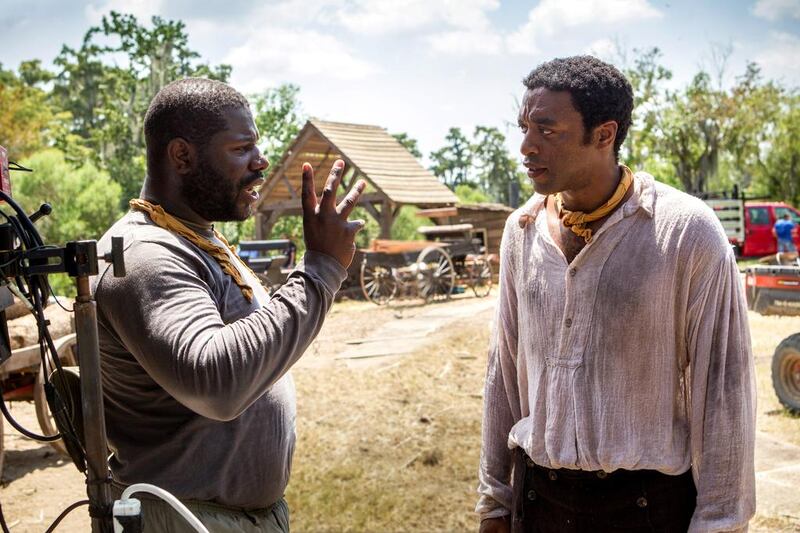In Steve McQueen’s 12 Years a Slave, Solomon Northup (Chiwetel Ejiofor), a free man from upstate New York who’s kidnapped and sold into slavery in Louisiana, is strung up for daring to strike an abusive plantation hand (Paul Dano). He’s cut down, but only just barely enough to reach the ground. McQueen captures it all in one long, agonising take, as Northup is left dangling, shuffling excruciatingly on his tiptoes.
“I don’t think I’ve seen that on film and I wanted to make damn sure if it was on film, it was going to be done well,” McQueen says.
“It was very necessary for me to use those kinds of shots to tell the story. Film is what, 115, 120 years old? It’s a baby. There’s no right or wrong way to shoot anything. It’s not style. It’s necessity.”
Film history, however, is long enough that one might expect one of the most essential chapters in United States history to have been depicted on screen more frequently and fervently. “It’s a massive hole,” says McQueen.
There have, of course, been a handful of notable films about slavery but, it’s safe to say, never before has there been a movie like this: 12 Years A Slave is the most unblinking portrait of slavery yet seen in cinema, a straightforward presentation of its atrocities, complications and, most of all, its reality.
“I wanted everyone to be Solomon Northup,” says McQueen. “You are on that journey with him.”
McQueen, the British director of the sex-addiction drama Shame and the Irish Republican Army hunger strike tale Hunger, had planned to make a film about slavery but it didn’t take shape until his wife came across Northup’s 1853 autobiography.
Ejiofor, a British actor of Nigerian extraction, plays Northup, a violinist taken from his family and put into servitude on plantations, all the while unable to contact his home or even proclaim his true identity. His journey – “down the rabbit hole” as Ejiofor says – isn’t into a uniformly evil world of slavery, but one peopled by a wide spectrum of human decency, both masters and slaves. Faced with unspeakable hardship, Northup refuses to surrender.
“They’re something about it that I find very heroic,” says Ejiofor. “You could only find that by really confronting his experience head-on.”
The hanging scene is only one of the film’s lengthy moments – a beating that serves as an introduction to life as a slave; a forced whipping of another slave – shown in full, unbroken view.
“If you don’t know what that feels like,” says Ejiofor, “if you don’t get inside that experience of being there all day, out there in the sun, hanged by your neck, barely able to stay alive, then you don’t know the depth that this man is prepared to go to to keep himself alive.”
Michael Fassbender, who starred in both of McQueen’s previous films, plays Edwin Epps, a harsh plantation owner. Fassbender sought to find the humanity in Epps, who’s torn by his love for his most prized cotton-picker (Lupita Nyong’o, in a devastating performance).
“You are going to places that are uneasy, but it’s my job,” says Fassbender. “Of course, the emotional elements follow and they do have an effect and there’s a residue going home with them. But concentrating on the work sort of protects yourself from that.”
The film is often harrowingly difficult to watch. But it’s ultimately concerned with being faithful to Northup’s experience (“Solomon deserved nothing less,” says McQueen) – and capturing his undimmed dignity.
“This is not National Geographic or any kind of scientific exploration to tell you how things actually were,” says McQueen.
• 12 Years a Slave is out now in UAE cinemas
[ artslife@thenational.ae ]





